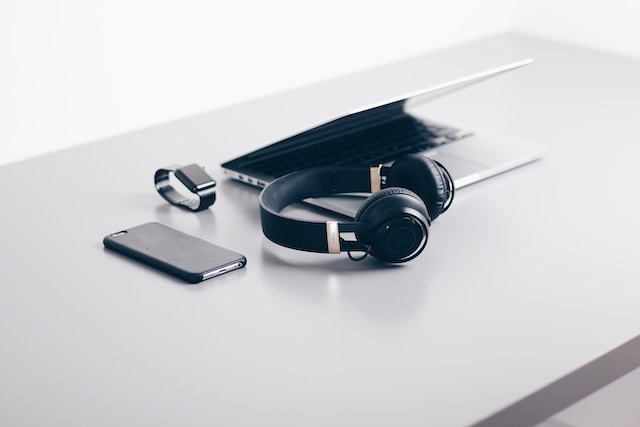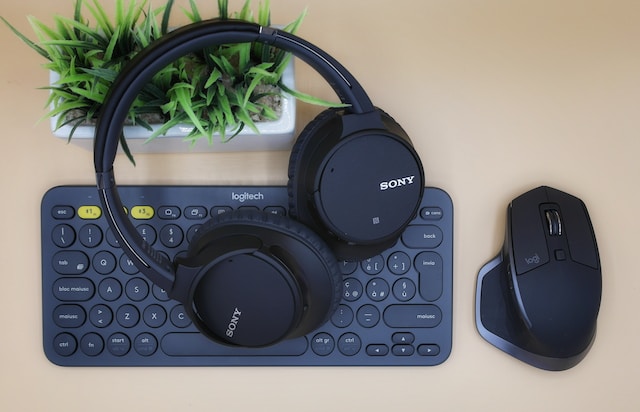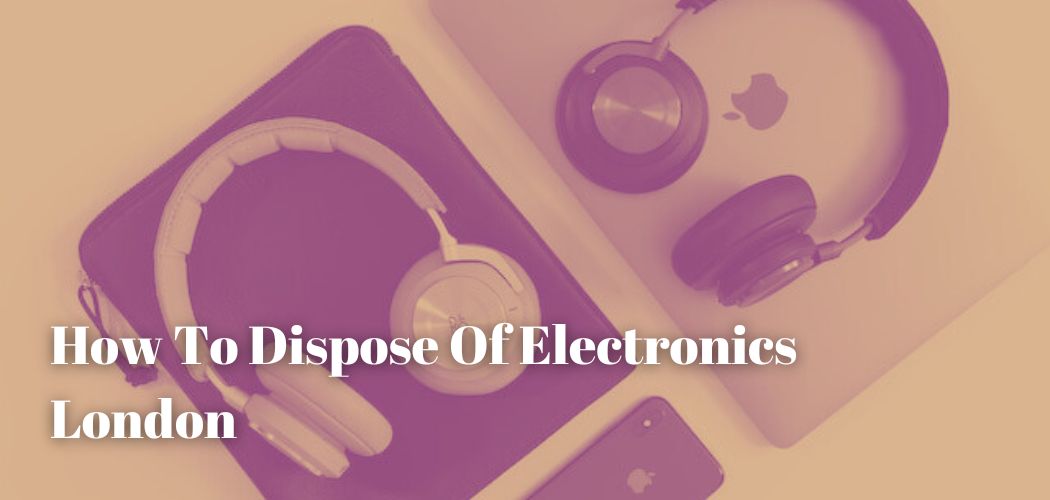You might be wondering how to dispose of electronics in London in order to clear out your home and make money off of your outdated equipment if possible.
In London, more than 10 million recyclable electrical items are handled annually by independent garbage carriers and reuse and recycling facilities managed by borough authorities all around the city.
Home appliances like kettles, irons, toasters, hair dryers, and radios are all small electrical goods that can be recycled at the neighborhood civic amenity site or at micro recycling facilities for electrical garbage that include receptacles exclusively for electronic waste.
To make the disposal of small electrical appliances simple and convenient, some local authorities in London also offer pop-up bring sites for electrical waste at public locations like the nearby train station.
Contents
How To Recycle Electronics
It is crucial that you never discard outdated electrical equipment. Yes, you can get rid of your old electronics, but never throw them in the trash or put them in your recycling.
By doing this, you run the risk of poisoning the environment with your old devices that leak harmful and dangerous compounds into the soil. Therefore, it is essential to properly dispose of electronics in order to prevent this from happening.

There are numerous choices that are supported by local authorities in London for people and households who need to dispose of electronics.
One of the most practical choices provided by the council is the micro recycling facilities, and people can consult their local council website for more information regarding the locations of recycling facilities that provide electrical recycling services.
Keep in mind that these bins only accept tiny electronics; anything larger than a toaster would need to be disposed of in another way.
You can bring medium-sized electrical devices to the home trash and recycling center (HWRC), including desktop printers, microwaves, and vacuums.
Residents are urged to consult with their local borough council about the rules governing electrical recycling at their HWRC and to be prepared to follow stringent health and safety laws when using the neighborhood civic amenities.
White goods like refrigerators, freezers, and washing machines as well as large electrical devices like TV monitors can be removed by local bulky waste collections or by independent contractors.
What Components Of A Device Are Recyclable?
Because we view electronics as integrated systems, we frequently are unaware of their component parts.
For instance, about 80% of a phone is recyclable, so even if you have extra components lying around, it’s likely that they can be recycled. Particularly, the parts listed below can be recycled:
- Batteries:
The majority of modern electronic device batteries are constructed of lithium-ion, which is recycled mechanically in a cobalt and lithium salt separation process into stainless steel, aluminum, concrete, copper, and plastic.
- Bezel:
Any plastic, metal, or other material encasing a device’s exterior, excluding the glass screen, is referred to as the bezel. Although you could get a lot of money for them if you sold them, recycling also helps the environment.
- PCB boards (mainboards):
If the materials are successfully recovered, PCB boards, which resemble a tangle of wires and metal buttons, can be recycled.
- Memory chips:
Any device containing a memory chip has the potential to be lucrative. Materials including mercury, iron, lead, silver, and even gold can be obtained after extraction.
Free Collection Of Electrical Goods
Some borough councils in London provide free electrical recycling as a part of their twice-weekly garbage collections for recycling, and they accept little things like electric toothbrushes, shavers, and battery power packs.

Free electronic waste collection services for both small and large electrical goods are also provided by numerous charitable organizations in London.
Bulky electrical equipment cannot be retrieved from the inside because most charities that provide an electrical recycling service only offer doorstep pickups.
WEEE Waste Collection In London
Even though the abbreviated names for waste electronics apply to both commercial and residential products, WEEE (waste electronic and electrical equipment) is more frequently used to refer to business waste management for workplace machines and appliances.
Office electronics including copiers, printers, air conditioners, and large-screen monitors can be collected by borough councils that have been hired by the company.
However, compared to council-operated services, private electronic waste management companies can typically provide a more customized service for the disposal of electronic waste.
Nearly all private electrical recycling contractors achieve a 100% landfill diversion for all electronic waste streams.
Commercial users, distributors, and manufacturers of electrical and electronic equipment (EEE) are all legally obligated to dispose of EEE in a safe and proper manner.
Businesses who want to dispose of electronic products must get in touch with the manufacturer because they can be in charge of the product’s collection, handling, and recycling.
Bulky Electronic Waste Collection In London
All local authorities in London offer a paid service for residents who pay council taxes to remove bulky waste.
This service is mostly for large appliances and furniture as well as for household electronics like TVs, lawnmowers, and white goods like dishwashers and washing machines.

The cost of collecting bulky waste can be negotiated with the local municipality and averages out at £25 per item.
It may take up to 4 to 6 weeks from the date of the request for collections to be made from the curbside within the predetermined time limit.
For the elderly and those on benefits, several borough authorities offer free bulky waste pickups.
Cash In On Your Old Electronics
Instead of recycling your old devices, you can also trade them in for cash or a gift card in order to make some additional money immediately.
CeX and Cash Converters are only a couple of the trade-in websites and stores that can be discovered on most local high streets and close to major towns.
Depending on where you go, businesses will accept a variety of products, including outdated laptops, game consoles, desktop PCs, and, most frequently, mobile phones.
You can receive substantially more money for your old equipment by selling it yourself if convenience isn’t that important to you.
You may accomplish this by selling online on platforms like Gumtree, eBay, or Shpock, or even on social networking platforms like Facebook Marketplace, Instagram, or Depop. Eliminating the intermediary could even result in you making more money.

